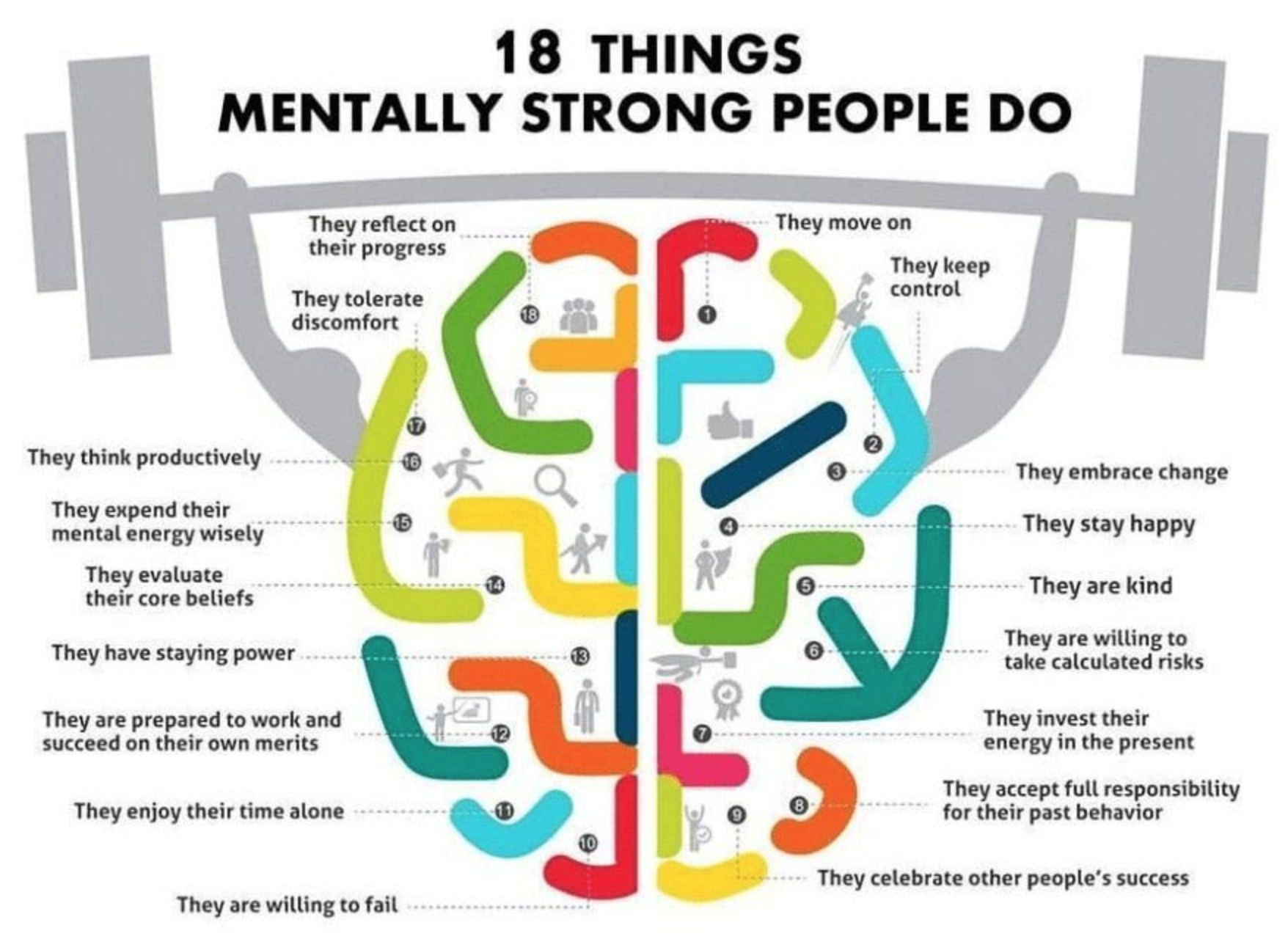Steps to Have a Healthy Mind and Body
Having a healthy mind and body is essential for living a happy and fulfilling life. However, in today's fast-paced and stressful world, it can be challenging to maintain a balance between our physical and mental health. Fortunately, there are some simple and effective steps that we can take to improve our well-being and prevent or reduce the risk of various diseases. In this article, we will explore some of these steps and how they can benefit us.
Step 1: Exercise regularly
According to the World Health Organization (WHO), adults should do at least 150 minutes of moderate-intensity aerobic physical activity or 75 minutes of vigorous-intensity aerobic physical activity per week. Aerobic exercise is any activity that makes our heart rate and breathing faster, such as walking, jogging, cycling, swimming, or dancing. We can also do some muscle-strengthening activities, such as lifting weights, doing push-ups, or using resistance bands, at least twice a week.
Step 2: Get plenty of sleep.
Sleep is another important factor for our health. Sleep can help our brain function better by clearing abnormal proteins, consolidating memories, and enhancing our learning and problem-solving abilities. Sleep can also help us regulate our emotions, mood, and stress levels. Sleep can also affect our physical health by influencing our metabolism, appetite, immune system, and cardiovascular system.
The National Sleep Foundation recommends that adults should get about seven to nine hours of uninterrupted sleep per night. To improve our sleep quality, we can follow some tips, such as:
- Stick to a regular sleep schedule
- Avoid caffeine, alcohol, nicotine, and heavy meals before bedtime
- Make our bedroom dark, quiet, comfortable, and cool
- Avoid using electronic devices such as phones, computers, or TVs at least an hour before bed
- Do some relaxing activities before bed, such as reading, listening to music, or meditating
Step 3: Eat a healthy diet.
Our diet can also affect our brain function and mood. A healthy diet can provide us with the nutrients that our brain needs to function properly, such as vitamins, minerals, antioxidants, omega-3 fatty acids, and amino acids. A healthy diet can also help us prevent or manage various chronic diseases, such as diabetes, heart disease, stroke, cancer, and obesity¹².
One of the most recommended diets for brain health is the Mediterranean diet, which emphasizes plant-based foods (such as fruits, vegetables, nuts, seeds, legumes), whole grains (such as oats, barley, quinoa), fish (especially oily fish such as salmon), and healthy fats (such as olive oil).
The Mediterranean diet also limits red meat (such as beef), processed meat (such as bacon), refined grains (such as white bread), added sugars (such as candy), and salt
Step 4: Stay mentally active.
Our brain is like a muscle that needs exercise to stay in shape. Staying mentally active can help us keep our brain sharp and prevent memory loss. Staying mentally active can also stimulate the growth of new brain cells and connections.
There are many ways to stay mentally active , such as:
- Learning new things (such as a language, a skill, or a hobby)
- Doing puzzles (such as crossword, sudoku, or jigsaw)
- Playing games (such as chess, scrabble, or cards)
- Reading books (especially fiction, which engages our imagination)
- Taking classes (online or offline, on any topic that interests us)
Step 5: Manage stress
Stress is inevitable in life , but too much stress can have negative effects on our brain and mental health. Stress can impair our memory , concentration , and mood. Stress can also increase inflammation and oxidative stress in our brain , which may contribute to aging and neurodegeneration¹²³.
To manage stress , we can practice some relaxation techniques, such as:
- Meditation (which involves focusing on our breath, a word, or an object)
- Mindfulness (which involves paying attention to the present moment without judgment)
- Yoga (which involves stretching, breathing, and posing)
- Deep breathing (which involves inhaling deeply through the nose and exhaling slowly through the mouth)
- Progressive muscle relaxation (which involves tensing and relaxing different muscle groups)
We can also seek social support from our friends, family, or professionals, who can listen to us, comfort us, and help us cope with our problems.
Conclusion
These are some of the steps that we can take to have a healthy mind and body. By following these steps, we can improve our well-being and quality of life. We can also prevent or reduce the risk of various diseases that can affect our brain and body. Remember, it is never too late to start taking care of ourselves. We deserve to be healthy and happy!










Comments
Post a Comment